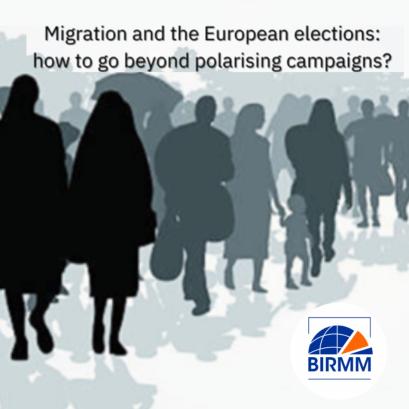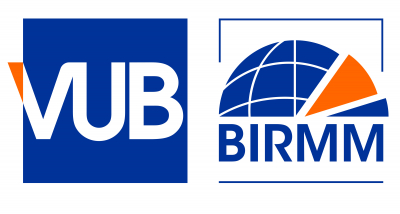
Looking back to BIRMM’s Migration and the European elections panel conversation on how to go beyond polarising campaigns?
From our five panel conversations geared towards promoting informed decisions in 2024 elections, we are nearing to the second panel debate on whether Belgium should attract more migrant workers. This question will be delved into on 27th March at Muntpunt.
However, before moving forward, it is important to shed light on the first panel debate. BIRMM proudly hosted its first panel debate on “How to go beyond polarising campaigns” looking at how the upcoming EU elections will affect migration. The event took place on 1st of February 2024, at Les Ateliers des Tanneurs. It was moderated by Florian Trauner.
Panelists Tineke Strik (MEP), Juan Fernando López Aguilar (MEP), Blanca Garcés (expert on immigration policy), Andrew Geddes (Professor of Migration Studies and the Director of the Migration Policy Centre), and Francesco Vigneri (researcher) engaged in a thorough examination of the subject, discussing the challenges and opportunities presented by migration policies in Europe and tried to answer the following questions:
- How do polarising narratives around migration emerge in the political debate?
- How can political parties and other civil society actors best respond to them?
- Is a different and more positive image of migration possible?
The panelists emphasised the importance of reversing the narrative around migration and asylum, shifting the focus from crisis rhetoric to highlighting the benefits and contributions of migrants to European society. They also highlighted the significance of addressing the lack of effectiveness in current migration policies and the need for a more evidence-based approach to policymaking.
One notable point of discussion was the role of communication and narrative-building in the context of election campaigns. The panelists stressed the need for proactive and positive communication about migration, countering the divisive and fear-driven narratives often used in political campaigns. The importance of targeting different demographics, including young audiences, and the influence of the media in shaping public opinion were also highlighted.
Additionally, the panelists raised concerns about the influence of the migration control industry, emphasizing the need for transparency and accountability in policymaking and decision-making processes.
Overall, the discussion shed light on the complex and multidimensional nature of migration and asylum policies in Europe, emphasizing the need for a more nuanced and evidence-based approach to addressing the challenges and opportunities presented by migration. The insights and recommendations provided by the panelists have significant relevance to current political and social debates surrounding migration and asylum in Europe.
This panel conversation was organized during the final conference of the BRIDGES conference, a Horizon 2020 project assessing the production and impact of migration narratives in Europe.
